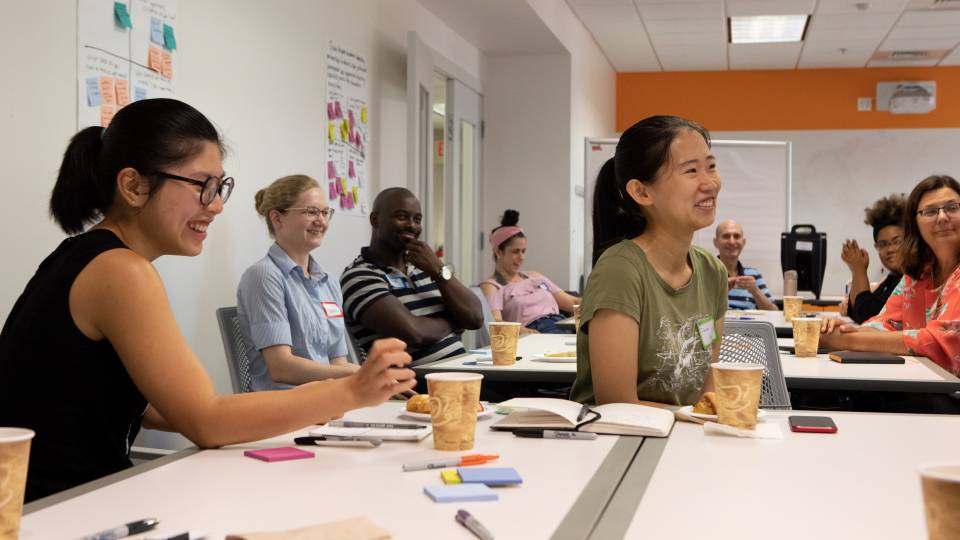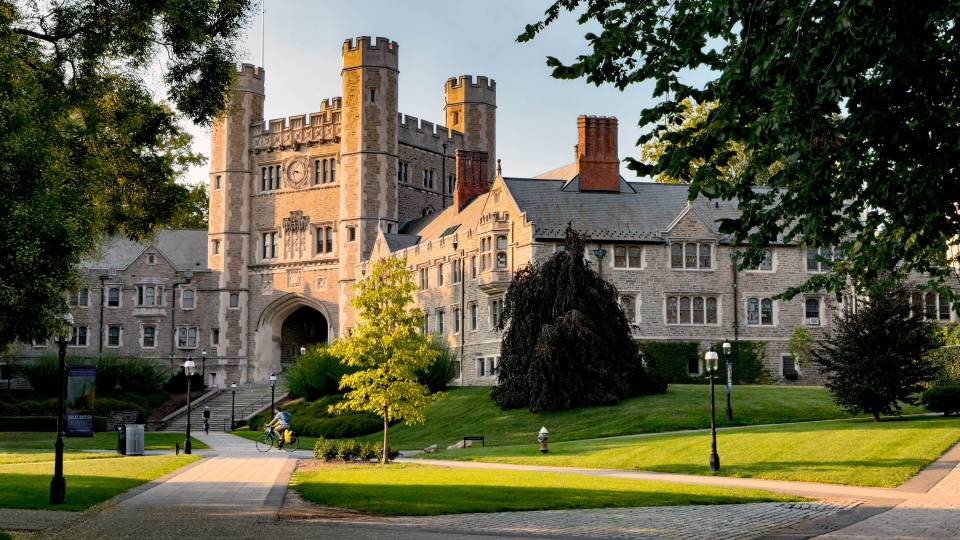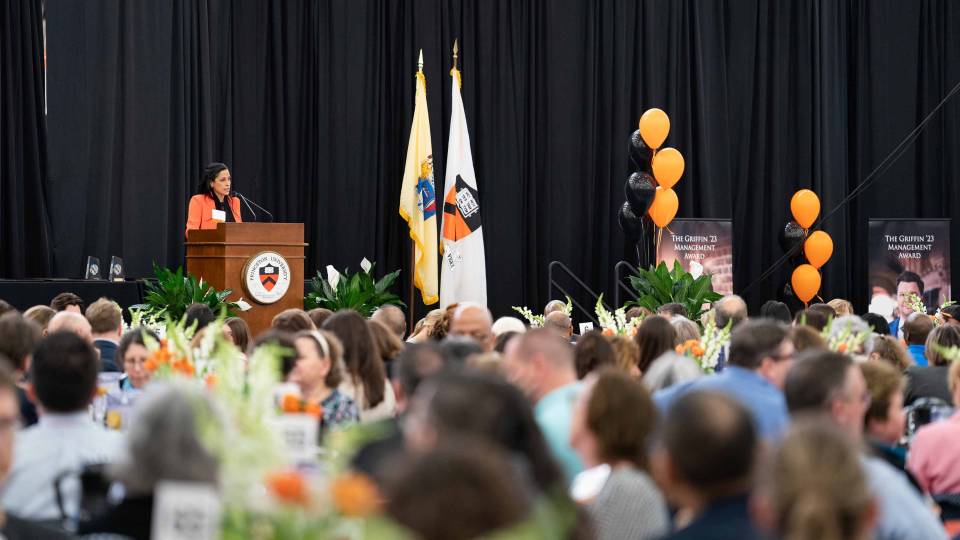Thirty-three Princeton graduate students co-created and completed the Graduate School’s inaugural Inclusive Leadership Learning Cohort(Link is external) (ILLC) in fall 2020. The GradFUTURES(Link is external) Professional Development and Access, Diversity and Inclusion teams at the Graduate School led this new initiative, partnering with graduate students to shape the program as a platform for anti-racism efforts.
The cohort’s focus on inclusive leadership is part of the University’s campus-wide campaign to confront America’s record of structural inequality and racism as well as Princeton’s place in that history. Graduate student participants in the inaugural cohort joined Princeton’s broader efforts to redress discrimination and marginalization. The cohort centers on the understanding that local action and individual commitment are paramount for achieving significant and sustainable change.
“We partnered with graduate students to design this program because we see inclusive leadership training as both critical for graduate students’ individual leadership development and essential for building a collective movement to support lasting structural change,” noted Eva Kubu, associate dean and director of professional development for the Graduate School.
The ILLC is structured as a co-curricular certificate. Participants submit a series of reflections on topics addressed in each workshop and an individual action plan outlining the next steps in moving their ideas forward at the conclusion of the series. More than 60 graduate students from all four academic divisions attended the various sessions and 33 students completed the program requirements.
The ILLC is action-oriented: It supports graduate students as they develop concrete and targeted inclusion strategies and practices they plan to implement in their respective spheres of influence. The ILLC’s first iteration featured 10 workshops in which graduate students explored topics including strategies to identify and address unconscious bias, grant writing and representation of people of color in STEM, and the relationship between diversity and innovation.
“What made the ILLC special was the combined emphasis on self-reflection and the application of strategies and practices that our graduate students were able to immediately implement in their personal, professional and scholarly endeavors,” commented Renita Miller, the Graduate School’s associate dean for access, diversity and inclusion.
In the first iteration of the ILLC, nearly half of the 33 individual action plans involved changes graduate students intend to lead on campus, often in conjunction with their departments. Action plans focused on a wide array of solutions, including promoting inclusive and equity-minded teaching, research and citation practices; designing equitable admissions recruitment processes; addressing voter suppression across the state; and building systems to support social and environmental justice for low-income communities of color.
Cohort participants reflected on the ways the ILLC’s topics related to their own experiences.
Laura Bustamante, a Ph.D. candidate in neuroscience, shared that the discussion of the concepts of “covering” and “culture-add” led by Tamika Curry Smith, president of The TCS Group, Inc., and a diversity and inclusion advocate and strategist, resonated most with her. Covering refers to the practice of downplaying a stigmatized part of one’s identity to avoid experiencing bias in a variety of contexts, including the workplace. Culture-add is based on the recognition that the strategic hiring of people from heterogeneous demographics and backgrounds brings diverse skillsets and problem-solving strategies that are superior to homogenous work cultures.
“Learning that 60% of people are covering marginalized parts of their identity was really powerful and inspired me to think of small ways to ‘uncover’ myself to make space for my research group to do the same,” Bustamante explained.
Expanding on her learning experience, Bustamante noted that the concept of culture-add highlights the fact that when we bring people together with diverse knowledge and working styles, and encourage them to express that in our teams, it adds to the team.
“A lot of hiring conversations hinge around culture fit,” Bustamante continued, “and people can have an affinity for others who they see as like them. Knowing these realities can help us work consciously towards diverse teams. As I continue to be a mentor, and eventually build a research group, I will certainly bring these lessons with me.”
In order to tackle such structural problems, the ILLC participants eschewed a narrow definition of inclusive leadership in favor of a capacious and highly personalized understanding of the engagement it requires. Rather than an abstract psychological profile, the graduate students conceived of the work of inclusive leadership as a set of concrete interventions, such as advocating for a strong commitment to nondiscriminatory and diversifying admissions policies, and developing inclusive teaching practices.
Self-reflection leading to action was a central takeaway of the ILLC initiative. Elizaveta Mankovskaia, a Ph.D. candidate in Slavic languages and literatures, noted that what she valued the most about the series “was the learning community and a chance to hear fellow graduate students reflect on issues and solutions for becoming an inclusive leader.”
Mankovskaia said she appreciated the focus on “practicable and individualized strategies of advocacy and change” rooted in each participant’s “individual traits and their personal plan to build and sustain an inclusive environment.”
The cohort is intended to become a fixture within GradFUTURES’ programming. Following the first cohort completion ceremony on Jan. 12, Mankovskaia and the other ILLC participants commented that they look forward to expanding the initiative’s scope and outreach during its next iteration this spring.
An information session is scheduled on March 18 for graduate students interested in joining the cohort. For more information about subsequent iterations of the ILLC, consult the program’s webpage(Link is external) or contact Eva Kubu at ekubu@princeton.edu.
Ina Simova, a Ph.D. candidate in comparative literature, was a participant in the inaugural Inclusive Leadership Learning Cohort.
















